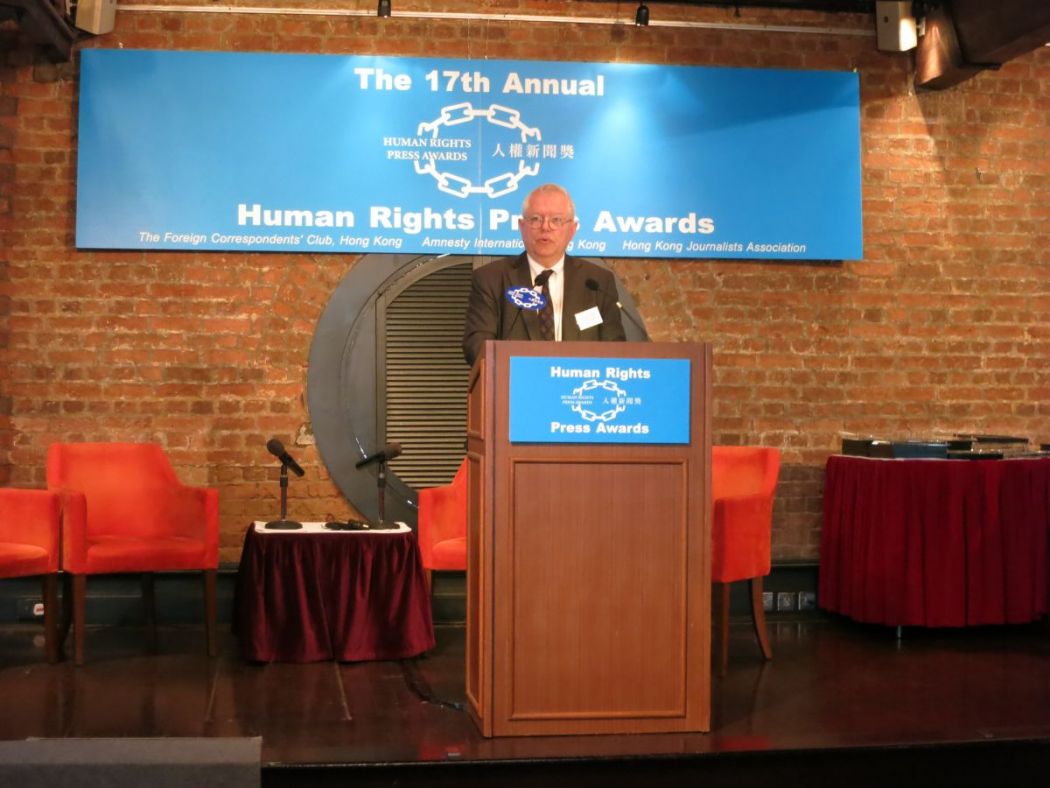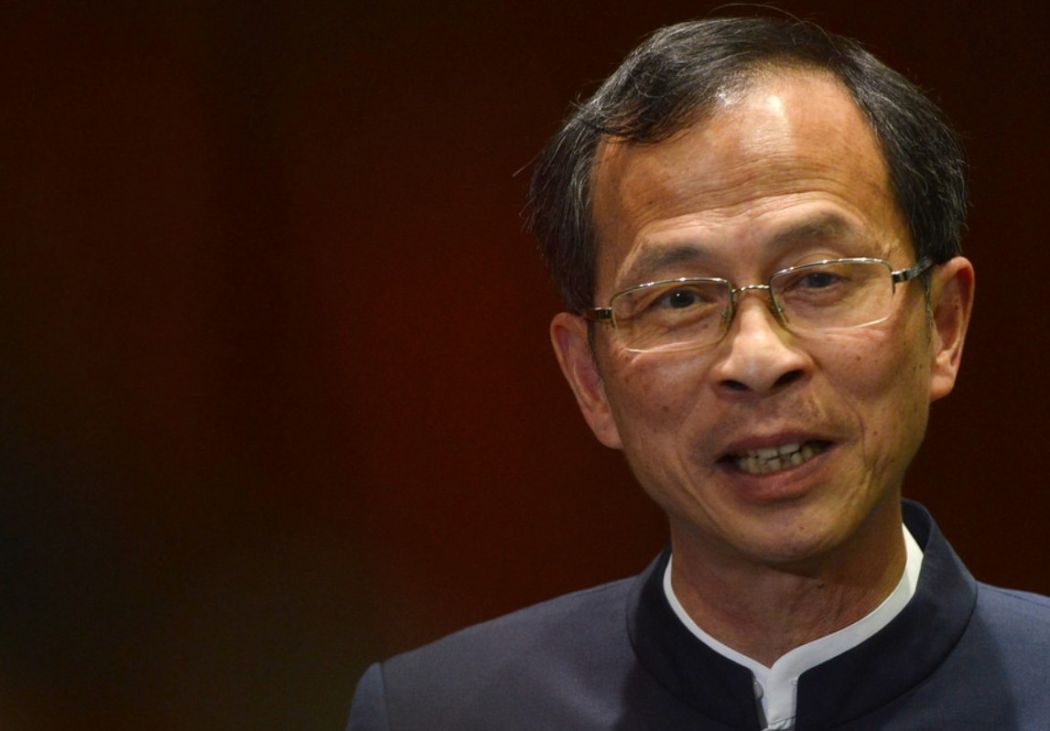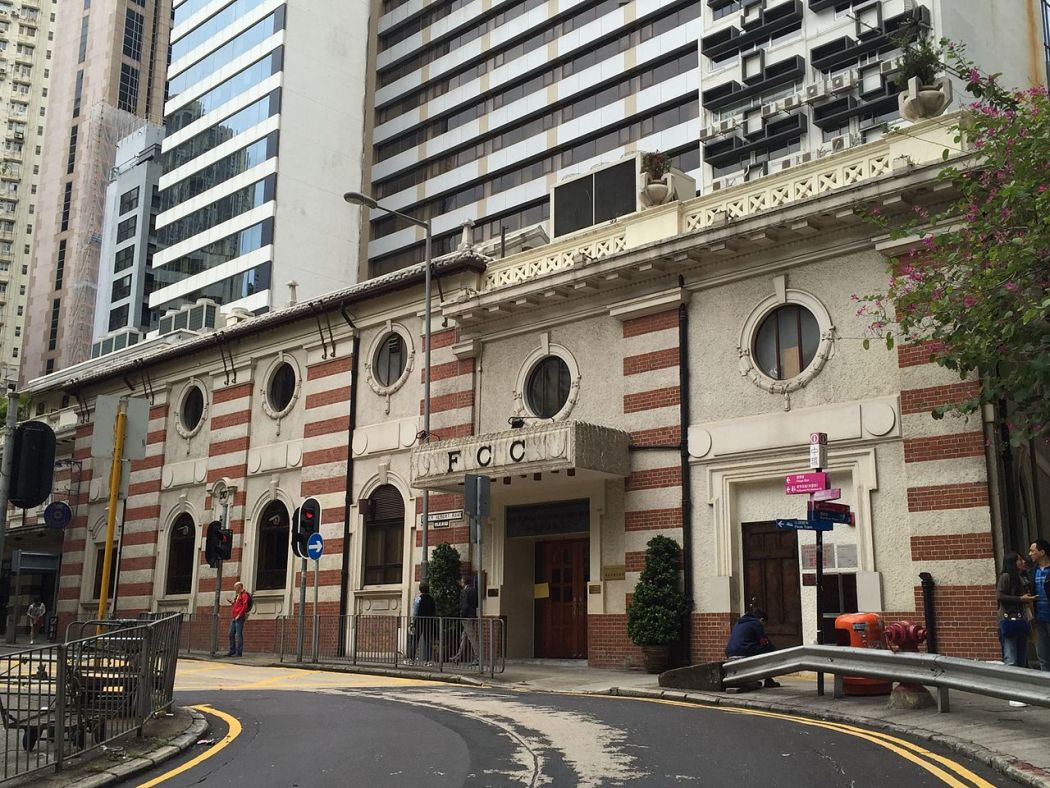Former chief executive Leung Chun-ying has raised the issue of the Foreign Correspondents’ Club’s lease before, according to a former board member of the Club.
HKFP first reported last Friday that the Chinese Ministry of Foreign Affairs in Hong Kong had attempted to block pro-independence activist Andy Chan from speaking at a luncheon talk next Tuesday. Leung, now a state leader, compared the event to giving terrorists a platform.
Leung claimed the premises were granted by the government to the FCC without a public bidding process, despite the lease offer being made during his tenure as the city’s leader. On Tuesday, he said that it was “not the normal process,” as he urged the FCC to disclose full details of the agreement.

Francis Moriarty, an FCC board member for 23 years before he left Hong Kong, told a D100 radio programme on Wednesday that Leung was a guest at the FCC several years ago and mentioned to the then-president its lease with the government.
“The then-president said, should I interpret what you are saying as a threat? And CY said to him, no, it’s not a threat, I just mentioned it as a point of fact.” Moriarty said. “But I think we all understood that there was no reason for him to raise the lease.”

Moriarty said there has been pressure from within the government to raise the rent over recent decades.
“I think the Government Property Agency is… mandated to try to get a rent that is as high as reasonable for the property, given the purpose is that it’s supposed to serve,” he said.
Leung previously claimed the Club paid a “token rent” for its Lower Albert Road building. But Moriarty said the rent was around HK$550,000 per month a few years ago. He said the land that the FCC sits on was not zoned for commercial purposes and that the rent was very high for its current usage.

HKFP has reached out to Leung for comment.
Restriction to freedom
Leung on Thursday cited Article 23 of the Basic Law – the national security law yet to be enacted by Hong Kong – once again, adding that freedom is not absolute in the city.
Under Article 23, Hong Kong should enact laws to prohibit any act of treason, secession, sedition, subversion, among other issues. Article 23 – which bounds the government and the public – has yet to be enacted following mass protests in 2003.
“Although these regulations have yet to be established with local legislation in Hong Kong, the regulations in Article 23 of the Basic Law are not vague and are necessary,” Leung said.
“To defend national security, nationals and residents have to bear some responsibilities – including some freedoms being restricted – this is a very common phenomenon even in Western countries, and it is not an exception for the FCC Hong Kong and Andy Chan,” he added.
Hostile action
Former Legislative Council president Jasper Tsang also weighed in and questioned why the FCC invited Chan to speak.

Tsang said Chan has freedom to express his opinion, which was already well known by the public as well as local and foreign reporters in Hong Kong. As such, there was no need to host the luncheon talk, he said.
He added that the FCC provided a golden opportunity for Chan to promote independence ahead of his party’s potential ban by the government.
“It is impossible for the management of the FCC not to understand that – when the Hong Kong government has launched the legal procedure to ban the Hong Kong National Party, providing a platform of promotion for Andy Chan will be seen as hostile action and political provocation by the Chinese government,” Tsang wrote in his regular AM730 newspaper column.

Tsang also referred to the lease and said it was automatically extended for a long time without a public bidding process.
“Such a privilege reflected the respect for foreign journalists by the Hong Kong government as mentioned by Chief Executive Carrie Lam. But the goodwill of the government was returned with hostility and provocation – what can they say?” Tsang wrote.
